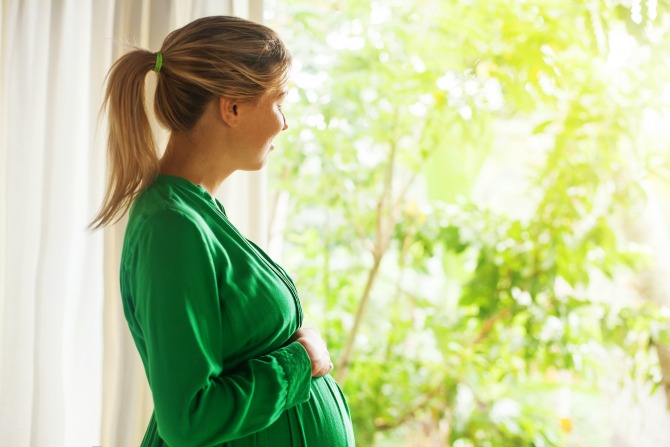Post-natal depression

Posted on
It’s common, it’s treatable and it’s nothing to be ashamed of.
One in 10 mums will experience antenatal depression while one in seven will experience postnatal depression. The stats for new fathers are one in 20.
That’s a lot.
As a parent, and a human being, connections and looking after your health and wellbeing are key factors to being the best we can be. If you’ve ever flown on a plane, then you’ll understand why the plane analogy resonates so well with this – fix your own oxygen mask to yourself before you look after anyone else’s.
It’s hard to remember this when we are trying our hardest to be a good parent, partner, daughter, sister, employee, role model, citizen… good everything!
I joined the Board of PANDSI, (Post and Ante Natal Depression Support and Information), four years ago. Even when I was asked by the Board why I wanted to join, I still couldn’t bring myself to admit it was because I had perinatal depression. Or that I wanted to ensure others didn’t go through what I went through, by not getting help straight away. I still wasn’t ready to talk about it, I was ashamed and I thought that people would think I wasn’t a good mum.
Fast forward to now, I’m the President of PANDSI and using my passion to ensure that parents have the courage (that I didn’t have), to seek the help and support that is available. PANDSI is unique in that no other state or territory offers the range of support that PANDSI does. We’re lucky in Canberra and thankful to ACT Health for funding us, however, like most not for profits we know that demand for service is beyond the grants we receive.
I’ve learned that there is nothing to be ashamed of if you have mental health problems, but more importantly that we are all good mums.
PANDSI has a poster up on its wall: “There is no way to be a perfect mother, but a million ways to be a good one”. I think those who go through adversity (and let’s face it, most of us have at some stage) make better people because of it. Even now, I have relapses of depression. However, the difference is I’m now surrounded by a good support network, a doctor and therapist that I like and, because I now talk about it, I have friends and family who step up to make sure I get through it.
My husband is amazing – from taking time off work to look after me to making sure I still get out of the house to exercise. I read a saying recently “If they are not there when you are at your worst, then they don’t deserve to be there when you are at your best”.
So, that’s me putting myself out there. I’ve done it to let people know that it’s ok to talk about depression and anxiety. It’s common. It’s treatable. It’s nothing to be ashamed of. Reach out to new parents in your lives; the stats of depression and anxiety are high.
Let’s make the conversation about our mental health a common one, we are strong but together we are stronger.
Visit the website www.pandsi.org, find PANDSI on Facebook or follow Christine Spicer on Twitter.


Leave a Reply
You must be logged in to post a comment.